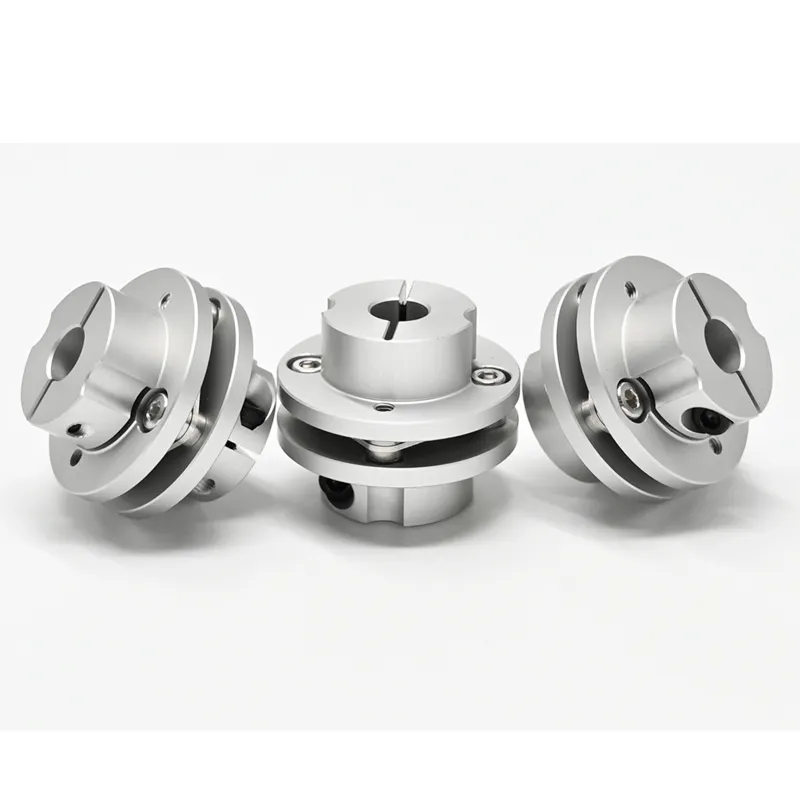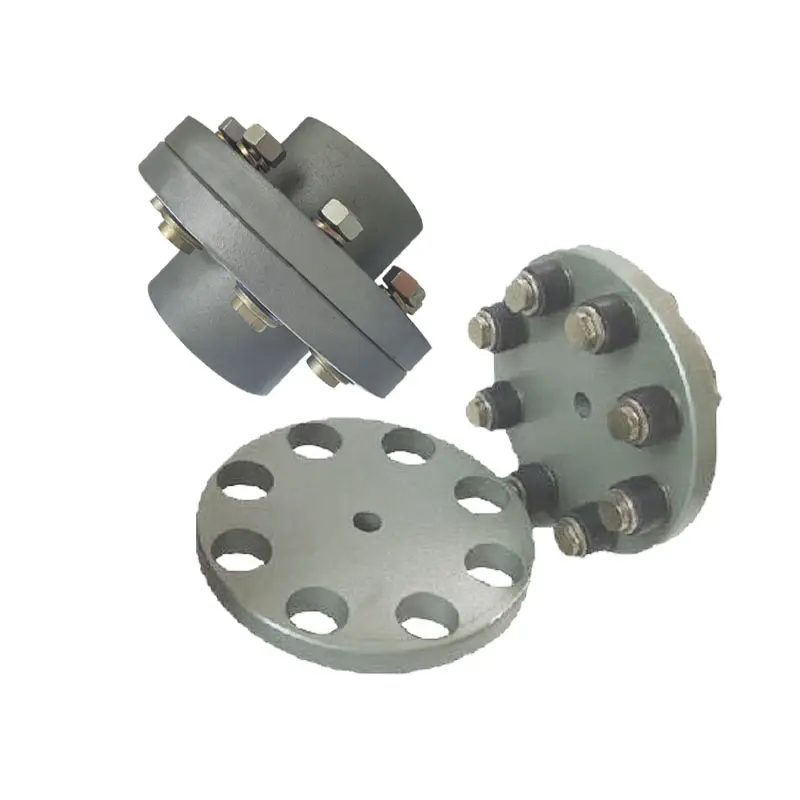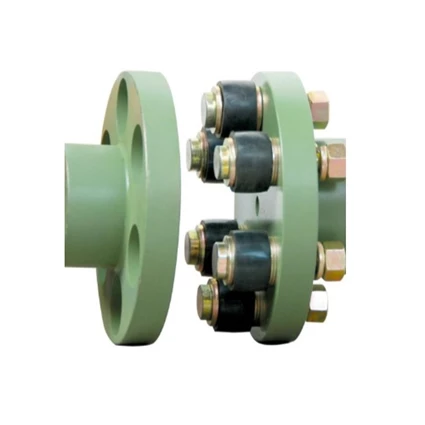|
221 , GMP , BSCI , BRC , SA 8000 , QHSE , HACCP , BS 25999-2 , ISO 13485 , EICC , ANSI/ESD , SEDEX , ISO 22000 , AIB , WRAP , GAP , ASME , ISO 29001 , BREEAM , HQE , SHE Audits , IFS , QSR , ISO 50001 , LEED , PAS 28000 , FSC , ISO 10012 , ISO 17571
Industrial Belt:
HangZhou Steel Wire
Company English Name:
ZheJiang HHangZhou Fastener Co., Ltd.
Country/Region:
China
Province/City/District/County:
ZheJiang , HangZhou, HangZhou
address:
Xilai Town, HangZhou City, ZheJiang Province, HangZhou, ZheJiang , China
zip code:
214500
ownership type:
Limited Company
registered capital:
10000000 RMB
site area:
101~500 square meter

Flange Couplings in Corrosive or Harsh Environments
Flange couplings can be used in a wide range of environments, including corrosive or harsh conditions, depending on the material and coating used in their construction. The choice of material is a critical factor in determining the suitability of a flange coupling for such environments.
Materials:
Stainless steel flange couplings are commonly used in corrosive environments due to their high resistance to rust and corrosion. Stainless steel contains chromium, which forms a protective oxide layer on the surface, preventing the underlying metal from being exposed to corrosive elements.
In particularly aggressive or chemically harsh environments, super alloys or specialty materials like Hastelloy or Inconel may be used for flange couplings, providing even higher corrosion resistance and chemical stability.
Coatings:
In addition to material selection, certain coatings can further enhance the resistance of flange couplings to corrosive environments. For example, coatings like zinc plating or epoxy coatings can add an extra layer of protection against corrosion.
Sealing and Protection:
Flange couplings used in harsh environments may also incorporate specialized sealing elements to prevent the ingress of contaminants, moisture, or corrosive substances. Proper sealing can significantly extend the service life of the coupling and the connected equipment.
Regular Maintenance:
While flange couplings designed for harsh environments are built to withstand corrosive elements, regular maintenance is essential to ensure their optimal performance. Regular inspections, cleaning, and lubrication, as well as prompt replacement of any damaged components, are vital to maintaining the integrity and functionality of the coupling.
Application Considerations:
When using flange couplings in corrosive or harsh environments, it is essential to consider the specific requirements of the application. Factors such as the type and concentration of corrosive substances, temperature variations, and mechanical loads should be carefully assessed to select the most suitable flange coupling for the given environment.
Conclusion:
Flange couplings can be engineered to withstand corrosive and harsh environments by using appropriate materials, coatings, and sealing techniques. With proper selection, installation, and maintenance, flange couplings can provide reliable and durable performance in challenging industrial settings.

Maintenance-Free Flange Couplings
Flange couplings can be designed to be maintenance-free, meaning they require minimal or no regular maintenance throughout their operational life. The key features and options that contribute to maintenance-free flange couplings include:
- Sealed and Lubricated: Some flange couplings are sealed and pre-lubricated with high-performance grease during the manufacturing process. This ensures that the coupling remains properly lubricated over an extended period, eliminating the need for routine lubrication.
- Self-Lubricating Materials: Certain flange couplings are constructed from self-lubricating materials, such as polymers or composites, that provide a low-friction interface between the mating surfaces. This reduces wear and eliminates the need for additional lubrication.
- Maintenance-Free Bearings: Flange couplings with integrated maintenance-free bearings further enhance the overall maintenance-free operation. These bearings are designed to withstand the required loads and provide long-lasting performance without the need for regular lubrication.
- Corrosion-Resistant Materials: Flange couplings made from corrosion-resistant materials, such as stainless steel or coated alloys, can resist environmental factors that might lead to corrosion and premature wear, resulting in extended maintenance intervals.
- Robust Design: A well-engineered flange coupling with a robust design can withstand harsh conditions, shock loads, and other stresses, reducing the likelihood of component failure and the need for maintenance.
It is essential to select a flange coupling that is specifically labeled as “maintenance-free” or “self-lubricating” by the manufacturer to ensure that it meets your maintenance objectives. However, it’s important to note that even maintenance-free flange couplings may still require periodic inspection to check for wear, alignment issues, or other potential problems.

Advantages of Flange Couplings in Mechanical Systems
Flange couplings offer several advantages in mechanical systems, making them a popular choice for connecting shafts in various applications:
- High Torque Transmission: Flange couplings provide a rigid and secure connection between shafts, allowing for efficient transmission of high torque without slippage or power loss.
- Precise Alignment: Proper alignment of flange couplings ensures that the connected shafts are in perfect axial alignment, reducing the risk of excessive bearing loads and increasing the longevity of the machinery.
- Zero Backlash: Flange couplings have no play or free movement between the shafts, resulting in immediate torque transmission and precise motion control, especially in applications requiring precise positioning.
- Robust and Durable: Flange couplings are typically made from high-quality materials such as steel, cast iron, or aluminum, providing excellent durability and resistance to wear and corrosion.
- Wide Range of Sizes and Torque Capacities: Flange couplings are available in various sizes and configurations, allowing them to be used in a wide range of applications with different torque requirements.
- Simple Installation: Installing flange couplings is relatively straightforward, requiring alignment and fastening of the flanges with bolts and nuts.
- Wide Application Range: Flange couplings are used in various industries, including heavy machinery, pumps, compressors, marine propulsion, and power generation equipment.
- Suitable for High-Speed Applications: Flange couplings can handle high rotational speeds, making them suitable for applications requiring high-speed power transmission.
- Minimal Maintenance: Once properly installed, flange couplings require minimal maintenance, reducing downtime and operational costs.
Despite their advantages, flange couplings also have some limitations. They lack the ability to compensate for misalignment like flexible couplings, which can lead to increased stress on bearings and other components if not correctly aligned. Additionally, the rigid nature of flange couplings means they may not be suitable for applications where shaft misalignment is common or where shock and vibration absorption is required.
Overall, flange couplings are a reliable and robust choice for mechanical systems, particularly in applications demanding high torque transmission and precise shaft alignment. Proper installation and maintenance are crucial to ensure optimal performance and longevity of both the coupling and the connected machinery.
 
editor by CX 2023-10-01
-
China supplier Customized Steel/Stainless Steel/Carbon Steel Lost Wax Casting/Precision Casting Steel Flange Coupling with Sandblasting/Machining in China flange coupling
-
China factory Ss F Type Flange Quick Release Coupling flange coupling
-
China Best Sales Custom Coupler Connector Flexible Split Flange Rigid Motor Guide Drive Shaft Coupling flange coupling
-
China Custom Stainless Steel Press Fit Flange Coupling (pn16) flange coupling
-
China Hot selling ISO2531 En545 En598 Ductile Iron Flange Adaptor Universal Joint Flexible Coupling flange coupling
-
China manufacturer CHINAMFG Rubber Bellows Flexible Pipe Joint Coupling with Floating Flange flange coupling
-
China Custom Wholesale High Quality SWC-BF Standard Telescopic Flange Universal Joint Coupling flange coupling
-
China Good quality Stainless Steel Coupling Gear Rigid Roller Chain Fluid Tyre Grid Jaw Spider HRC Nm Motor Flange Gear Pump Rubber Spline Shaft Flexible Universal Joint Coupling flange coupling
-
China Custom Flange Motor Guide Shaft Coupling Connector Shaft Accessory DIY RC Mode flange coupling
-
China Good quality High Speed Gys Flange Coupling High Torque Rigid Shaft Coupling Flanged Shaft Coupling flange coupling
-
China high quality Stainless Steel Coupling Gear Rigid Roller Chain Fluid Tyre Grid Jaw Spider HRC Nm Motor Flange Gear Pump Rubber Spline Shaft Flexible Universal Joint Coupling flange coupling
-
China high quality ISO2531 Ductile Iron Flange Adaptor Flexible Coupling Flange Adaptor Coupling flange coupling
-
China factory Flange Adaptor/Dismantling Joint/Flexible Coupling flange coupling
-
China Hot selling Stainless Steel Coupling Gear Rigid Roller Chain Fluid Tyre Grid Jaw Spider HRC Nm Motor Flange Gear Pump Rubber Spline Shaft Flexible Universal Joint Coupling flange coupling
-
China high quality Casting Pipe Fitting Joints Hexagon/Hex Nipple Outside Threaded Flanges/Coupling/Tees/Elbow/Clamp Coupling/Reducing Hex Nipple Tube Ss 304 316 Accessories flange coupling
-
China Best Sales CNC Turning Stainless Steel Flange Sleeve Bushings Full Coupling flange coupling
-
China factory Stainless Steel Coupling Gear Rigid Roller Chain Fluid Tyre Grid Jaw Spider HRC Nm Motor Flange Gear Pump Rubber Spline Shaft Flexible Universal Joint Coupling flange coupling
-
China Best Sales ISO2531 Ductile Iron Flange Adaptor Flexible Coupling Flange Adaptor Coupling flange coupling
-
China supplier Oosing Ductile Iron Double Bend Ductile Iron Manhole Cover and Drain Grating Flange Tee Coupling flange coupling
-
China manufacturer Stainless Steel Coupling Gear Rigid Roller Chain Fluid Tyre Grid Jaw Spider HRC Nm Motor Flange Gear Pump Rubber Spline Shaft Flexible Universal Joint Coupling flange coupling
-
China manufacturer Flange Motor Guide Shaft Coupling Connector Shaft Accessory DIY RC Mode flange coupling
-
China best Custom Flexible Flange Plastic Nylon and Rubber Protector Coupling / Connecting Pipe flange coupling
-
China Hot selling SS316 Flange Connection Ripple Compensator Coupling for Tube Big Size Telescopic Expansion Bellows Joint Flangeless with PTFE flange coupling
-
China Standard Mechanical Transmission Components, Agricultural Machinery Parts, Conveyor Parts, Chain Sprocket Gears, Couplings, Flanges flange coupling
-
China Good quality Carbon Steel Dismantling Joint (Pipe Fitting) Flange Adaptor Universal Coupling flange coupling
-
China Professional Customize Double Flange Gear Coupling flange coupling
-
China Custom Mechanical Transmission Components, Agricultural Machinery Parts, Conveyor Parts, Chain Sprocket Gears, Couplings, Flanges flange coupling
-
China factory Ductile Cast Iron Coupling and Flange Adaptor Ductile Iron Pipe Fitting flange coupling
-
China wholesaler CHINAMFG Lms Type Double Flange CHINAMFG Flexible Jaw Couplings flange coupling
-
China Professional Mechanical Transmission Components, Agricultural Machinery Parts, Conveyor Parts, Chain Sprocket Gears, Couplings, Flanges flange coupling
-
China high quality Wide Range Flexible Universal Joint Flange Adaptor Gibault Coupling CHINAMFG Johnson Coupling flange coupling
-
China OEM Djm Elastic Diaphragm Coupling Disc Motor Supplier Shaft Coupling Manufacturers Diaphragm Flange Keyed Coupling flange coupling
-
China Hot selling Mechanical Transmission Components, Agricultural Machinery Parts, Conveyor Parts, Chain Sprocket Gears, Couplings, Flanges flange coupling
-
China wholesaler Cast Iron Steel Normex Flange Shaft Flexible Nm Coupling with Rubber flange coupling
-
China best Di Ductile Iron Joint Pipe Fittings Restraint Grip Flange Adaptor Coupling for HDPE Pipe flange coupling
-
China Standard Flexible Universal Range Coupling Flange Adaptor ISO9001 Pipe Fitting flange coupling
-
China factory Ductile Iron Casting Car Accessories Flexible Flange Couplings Shaft Couplings flange coupling
-
China supplier CHINAMFG Lmd Type No Lubrication Easy Maintenance Jaw Single Flange Jaw Spider Couplings flange coupling
-
China supplier Flexible Universal Range Coupling Flange Adaptor ISO9001 Pipe Fitting flange coupling
-
China factory OEM Ductile Cast Iron En545 Fitting Connector Universal Wide Range Flange Coupling flange coupling
-
China Best Sales Standard Telescopic Flange Cardan Quick Coupling flange coupling
-
China manufacturer Flexible Universal Range Coupling Flange Adaptor ISO9001 Pipe Fitting flange coupling
-
China Professional Waterproof PVC Pn16 SDR11 Van Stone Flange Coupling Butt-Fusion for Pipe System flange coupling
-
China Custom Heavy Duty Flange Type C Stainless Steel 316 Quick Connect Coupling flange coupling
-
China factory Flexible Universal Range Coupling Flange Adaptor ISO9001 Pipe Fitting flange coupling
-
China OEM Flange Pipe Fittings Grooved Reducer Clamp Coupling Flexible Pipe Mechanical Coupling flange coupling
-
China Good quality High Speed Transmission Shaft Flexible Couplings Flange Serpentine Shaft Snake Spring Grid Couplings flange coupling
-
China Professional Super High Pressure Stainless Steel Hydraulic Quick Coupling for Flange Spreader flange coupling
-
China Best Sales Tee/Elbow/Cross/Flange/Reducer/Cap/Grooved Pipe Fittings Grooved Couplings flange coupling
-
China best Restrained Flange Adaptor Coupling for HDPE Pipe flange coupling
-
China Good quality OEM Nonstandard Colored PU Rubber Male Flange Bushing Coupling / Jaw Coupling flange coupling
-
China high quality Customized Steel/Stainless Steel/Carbon Steel Lost Wax Casting/Precision Casting Steel Flange Coupling with Sandblasting/Machining/Galvanized flange coupling
-
China high quality Restrained Flange Adaptor Coupling for HDPE Pipe flange coupling
-
China wholesaler OEM Ductile Cast Iron En545 Fitting Connector Universal Wide Range Flange Coupling flange coupling
-
China best Spare Parts Swivel Flange /Coupling of Piling Rig Kelly Bar flange coupling
-
China Best Sales Spare Parts Swivel Flange /Coupling of Piling Rig Kelly Bar flange coupling
-
China Standard Restrained Flange Adaptor Coupling for HDPE Pipe flange coupling
-
China high quality UPVC Pn10 Type Pressure Pipe Fittings Flange Coupling flange coupling
-
China OEM UPVC Pn10 Type Pressure Pipe Fittings Flange Coupling flange coupling
-
China best Di Ductile Iron Joint Pipe Fittings Restraint Grip Flange Adaptor Coupling for HDPE Pipe flange coupling
-
China OEM CHINAMFG Rubber Bellows Flexible Pipe Joint Coupling with Floating Flange flange coupling
-
China factory Flexible Universal Range Coupling Flange Adaptor ISO9001 Pipe Fitting flange coupling
-
China best High Quality Customized Flange Rubber Coupling for Pipe flange coupling
-
China manufacturer Gfc-20X25 Type Aluminum Alloy Shaft Flange Coupling Flexible Shaft Coupling flange coupling
-
China factory Flexible Universal Range Coupling Flange Adaptor ISO9001 Pipe Fitting flange coupling
-
China supplier High Quality F Type Fenaflex Tyre Coupling with Flange flange coupling
As one of leading flange coupling manufacturers, suppliers and exporters of mechanical products, We offer flange coupling and many other products.
Please contact us for details.
Mail:[email protected]
Manufacturer supplier exporter of flange coupling
|





